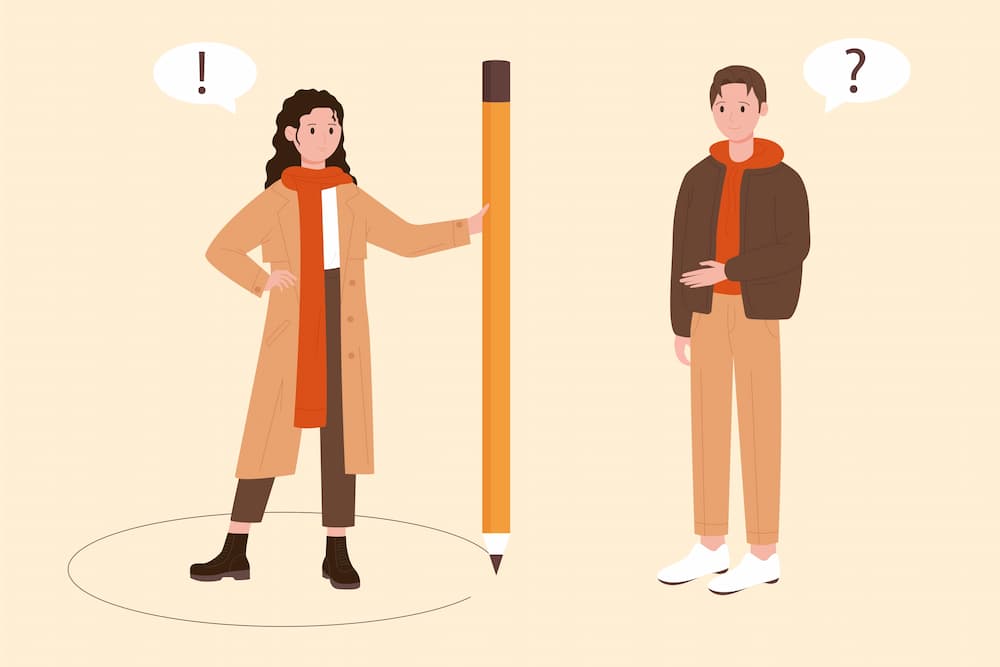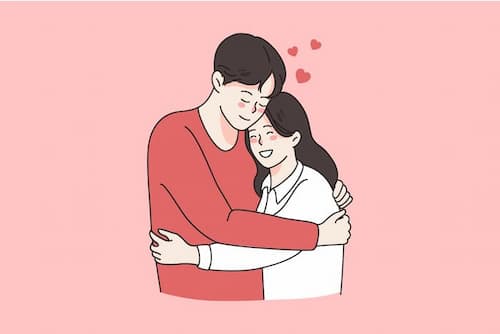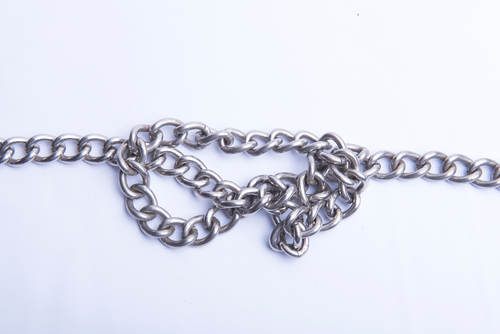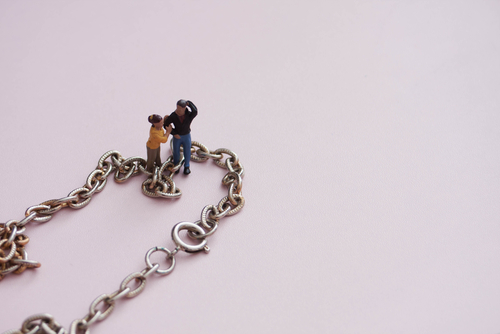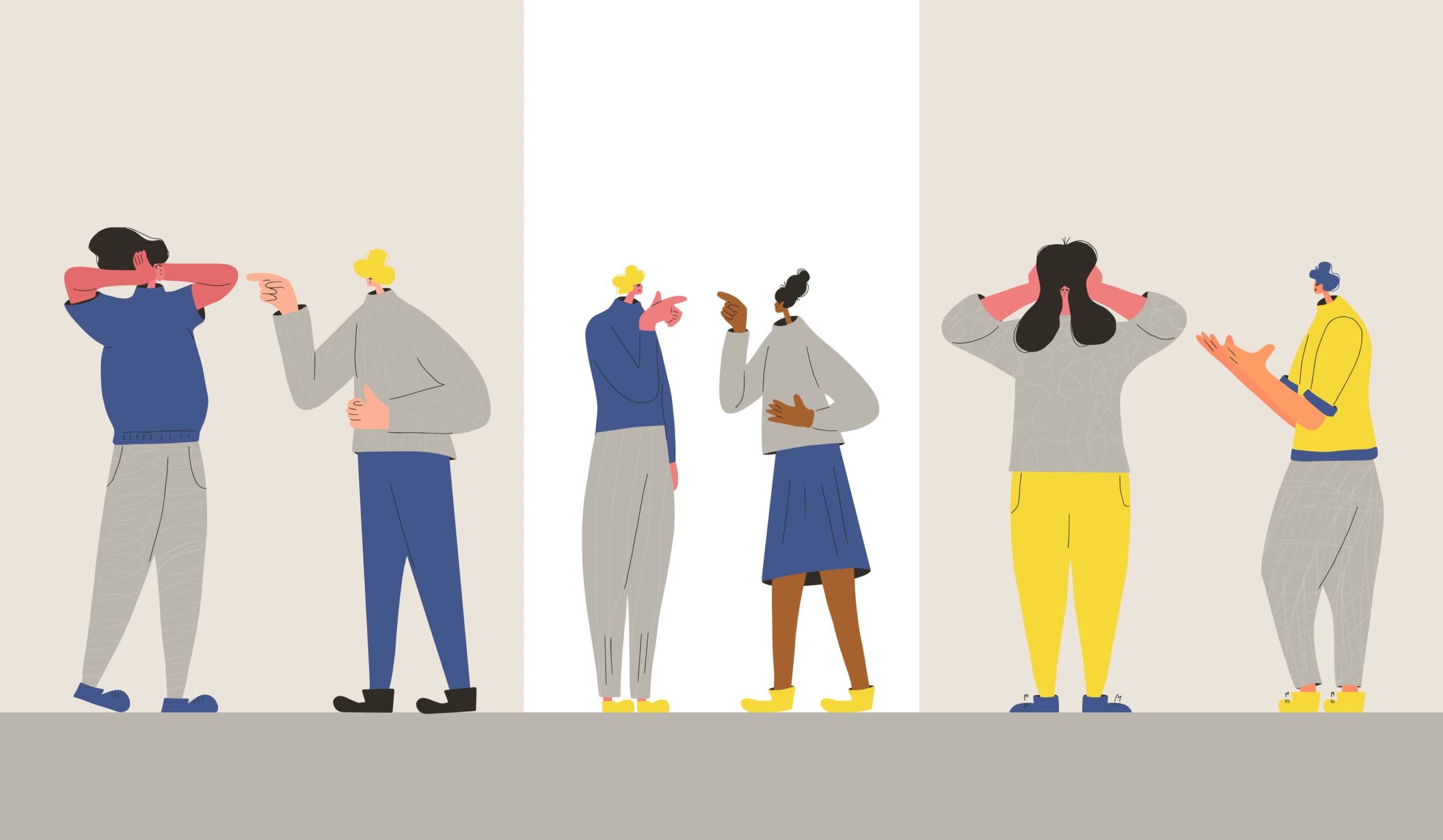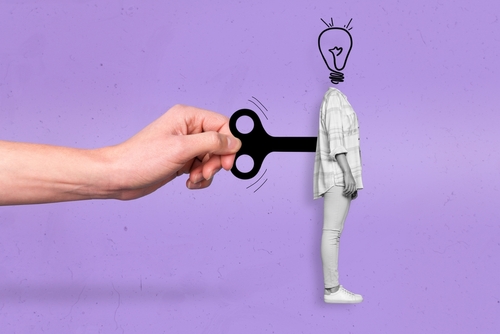Imagine having a nice backyard, where you want to plant several fruit trees. If you go ahead and plant them right next to each other, with very little space in between, a few seedlings will probably thrive, at least in the beginning. However, those few will soon start taking all the nutrients and blocking the sunlight for others, causing them to wither and die.
If you space the seedlings out properly, leaving a little plot and enough room to grow for each one, you can expect them all to start bearing fruit.
The analogy stands for people and their relationships as well. After all, what are boundaries in relationships but little picket fences? They clearly define each planting space, enabling the seeds of individuality, shared aspirations, and mutual trust and understanding to thrive, enriching the relationship and making it more enjoyable, satisfying, and fruitful.
What Are The 5 Boundaries For Healthy Relationships?
The first and most important thing to understand is that boundaries are not walls intended to limit or prevent partner interaction. Quite the opposite. Many people think of the word boundary and automatically think they are rigid and cold. What boundaries are is the building blocks of a healthy relationship, their sole purpose the creation of an environment that fosters individual growth, open communication, and mutual respect. The most important types of boundaries within relationships are:
Intellectual Boundaries
At the core, every relationship is a journey of personal as much as mutual growth. However, while you may journey together and toward the same destination, the individualized perception of the path ahead will inadvertently lead to different, unique experiences for each individual involved.
This is exactly where the power of intellectual boundaries lies: in protecting the sanctity of individualism. They enable each person to not only have their own ideas, aspirations, values, and beliefs with the ability to freely express and assert them.
Of course, encountering an occasional difference of opinion is an inevitable and integral part of every relationship. However, with healthy intellectual boundaries, this divergence actually becomes the means of strengthening your connection, not weakening it.
By nurturing personal growth and individualism in yourself and your partner, you gain an amazing ability to acknowledge and celebrate each other’s uniqueness, creating a fertile ground for a thriving relationship.
Emotional Boundaries
Setting emotional boundaries is a healthy way for both partners to stay in touch and in control of their feelings, independently of one another while also fostering the expression of emotions toward one another. It is essential to understand that “independently”, in this instance, does not mean blocking each other out – quite the contrary.
It means retaining the ability to recognize and empathize with the emotions or moods of others, without being influenced by them. As such, emotional boundaries are integral in creating a safe space where both partners can express themselves, without fear of judgment or rejection.
These boundaries allow for vulnerability, compassion, and honesty without apprehension, laying the groundwork for open and genuine communication, deepening emotional connection, and solidifying the foundation of mutual trust and understanding upon which every relationship rests.

Physical Boundaries
When we talk about physical boundaries, the first and most obvious association regards intimacy. While undoubtedly a major part of it, these boundaries also encompass the principal need for personal space, comfort, and safety.
Physical boundaries are all about being considerate and respectful of each other’s autonomy. This involves understanding the partner’s preferences when it comes to touch and displays of affection, as well as the physical space they may require to feel safe and comfortable.
Acknowledging and honoring physical boundaries creates a sense of agency in relationships, enabling each person to openly and without fear express their comfort levels. This not only fosters respect and harmony on a physical level but also empowers emotional growth and expression, creating a beautiful nurturing circle that allows the partnership to thrive.
Time Boundaries
In the whirlwind of chores and responsibilities that comprise modern life, finding time for things we cherish is critical for maintaining our sense of self together with our mental and physical well-being. In a relationship, time boundaries allow each partner to have that essential personal moment for things like hobbies and social activities that do not pertain to the relationship itself.
Similarly to other boundaries, these ones help nurture individualism and independence. Simultaneously, they enrich the relationship with an injection of fresh, different viewpoints and conversational topics that can help avoid feelings of staleness and being stuck in a rut.
Financial Boundaries
Finally, we cannot fail to mention financial boundaries. These play an integral role in establishing transparency, responsibility, and accountability within a relationship. Considering how money can be (and often is) an instigator of conflict, clear and open communication about financial aspirations, limitations, values, and habits is of utmost importance.
Establishing clear financial boundaries does two essential things for a relationship:
- It enhances partners’ financial compatibility, while reducing financial stress, and;
- Reinforces mutual trust and independence by nurturing healthy financial interdependence.
What Are The 10 Steps To Setting Healthy Boundaries?
Now that we’ve established what boundaries are and what they mean within a relationship, it is time to extrapolate the means of setting them:
- Practice self-awareness: Identifying and clearly defining your values, needs, and limits is essential for the formation of healthy boundaries.
- Nurture self-sufficiency: This doesn’t mean walling off your partner. Rather, it means taking responsibility for your needs and finding a mutually acceptable way of fulfilling them.
- Initiate open communication: Be clear, honest, and specific when talking to your partner about the boundaries you wish to establish.
- Use “I” statements: This approach allows you to express your thoughts and feelings without sounding accusatory.
- Learn to say “No”: If something goes against your most basic principles and values, it is perfectly fine to nip it in the bud.
- Be ready to negotiate: Some boundaries may require a bit of compromise for the sake of the well-being of everyone involved, so be ready to work on reaching common ground.
- Stay consistent: Once boundaries are in place, be sure to stick to them (i.e. don’t shift them as you see fit) and expect the same from your partner.
- Respect their boundaries: Show the same respect for the boundaries set by your partner that you expect for your own.
- Reiterate: In times of crisis, it may seem viable to shift or remove your boundaries. Don’t! Rather, remind yourself why they were set up in the first place since, in most cases, this is counterproductive for yourself and the partnership as a whole.
- Reassess regularly: As your relationship evolves, you or your partner may find that set boundaries no longer work optimally. This is perfectly normal, so be ready to revisit and fine-tune them so they continue to meet both your needs.
What Are The Signs My Partner Is Ignoring My Boundaries?
While you may exercise your best efforts and intentions to keep healthy boundaries, sometimes other people might not share in your enthusiasm. Sometimes, boundaries are broken and another person may cross the line. In these instances, the key thing is to recognize and address these occurrences. Here are some telltale signs:
- Codependent dynamic: If you’re constantly feeling like you’re giving without receiving anything in return or that your life is on the back burner, it may be a sign that your boundaries aren’t set properly or that the other person is blatantly ignoring them.
- Constant boundary resetting/Dismissive attitude: If your partner constantly belittles or dismisses your boundaries, forcing you to set them over and over again, it is a clear red flag that they’re not respectful of your needs.
- Constant pushing: If someone repeatedly attempts to push you into uncomfortable situations or actions, despite your expressed discomfort, they are clearly stepping over the line.
- Manipulative behavior: If someone is guilt-tripping, gaslighting, or otherwise trying to make you feel uncomfortable for setting your boundaries, it may signify a severe lack of respect for your values, principles, and overall well-being.
- Lack of communication: If your partner avoids or outright refuses to acknowledge or even discuss your boundaries (or crossing them), you can be fairly certain they’re ignoring them.
What Do I Do If My Partner Ignored My Boundaries?
We may conclude that boundaries, once set, aren’t necessarily respected. We can go a step further and say that, sometimes, boundaries can be virtually impossible to establish due to the other person’s inability or unwillingness to accept them.
These situations beg the question of what to do when someone ignores you. Even better, how to set a boundary with someone who ignores you constantly? Here are some strategies you can employ to address the situation:
- Reiterate: In some situations, your partner may not be aware that they’re overstepping. Therefore, the first step is to revisit the topic and to be as clear and concise as possible, without casting blame or being accusatory.
- Reassert: If boundary-busting behavior continues, let your partner know the moment they’ve crossed the line. Make them aware of how their actions made you feel and respectfully reassert your standpoint (i.e. boundary).
- Enforce: If undesirable behavior continues despite your best efforts, you’ll have to exercise what is known as “logical consequences”. However, do note that these aren’t “punishments” (although it may seem so to the other party). Rather, they are obvious repercussions of your boundaries being disrespected.
Finally, if everything else fails, it is highly advisable to seek help. You may do so by asking family or friends for advice or intervention. However, by far the best option is to turn to professionals, as their expertise can be pivotal in turning the bad situation around.

Learn How To Set Different Types Of Boundaries To Enhance Your Relationships
Setting clear boundaries is as much art as it is science, and PIVOT is here to help you bridge the gap between the two and master your boundary-setting skills. We’ll grant you the means of cultivating relationships based on mutual respect, open communication, and healthy emotional interdependence.
Join us in our beautiful and serene Glass House retreat, where a team of compassionate coaches offers personalized guidance on a journey to self-awareness, empowering you with the knowledge necessary to negotiate, set, and maintain healthy boundaries.
Reach out to us today and take the first step towards more fulfilling, harmonious relationships.
